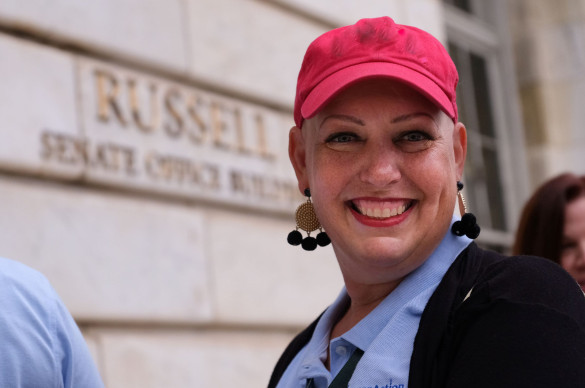Mammograms save lives. But, even today, too many women don't have access to lifesaving breast and cervical cancer screenings.
We are working in Congress and in every state legislature to ensure funding for the federal cancer screening and early detection program that has already helped millions of women and saved thousands of lives.
More than 40,000 women will die from breast cancer this year, while over 13,000 will be diagnosed with cervical cancer. We're working to convince Congress to increase funding for breast and cervical cancer research that could lead to new medical breakthroughs and save more lives.


